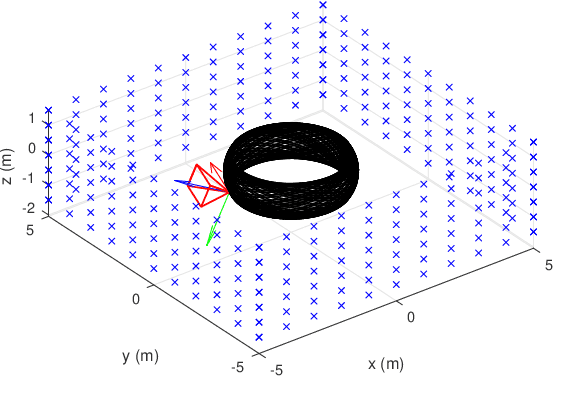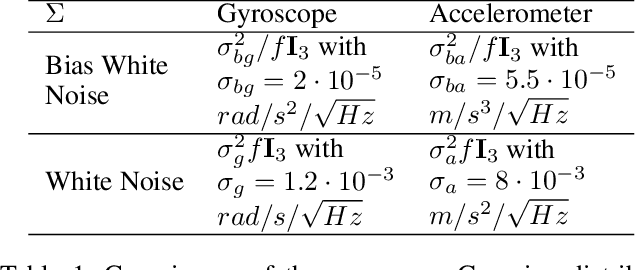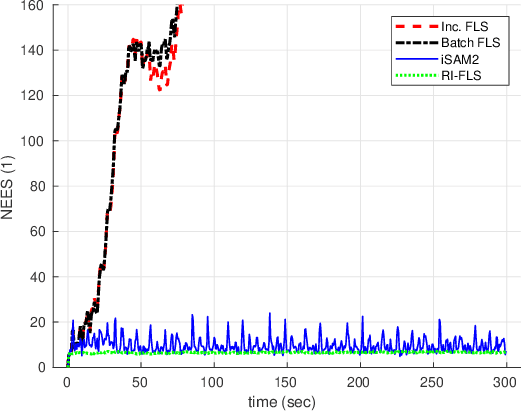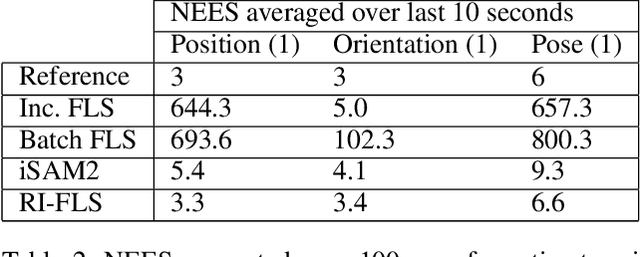Consistent Right-Invariant Fixed-Lag Smoother with Application to Visual Inertial SLAM
Paper and Code
Feb 17, 2021



State estimation problems that use relative observations routinely arise in navigation of unmanned aerial vehicles, autonomous ground vehicles, \etc whose proper operation relies on accurate state estimates and reliable covariances. These problems have immanent unobservable directions. Traditional causal estimators, however, usually gain spurious information on the unobservable directions, leading to over confident covariance inconsistent with the actual estimator errors. The consistency problem of fixed-lag smoothers (FLSs) has only been attacked by the first estimate Jacobian (FEJ) technique because of the complexity to analyze their observability property. But the FEJ has several drawbacks hampering its wide adoption. To ensure the consistency of a FLS, this paper introduces the right invariant error formulation into the FLS framework. To our knowledge, we are the first to analyze the observability of a FLS with the right invariant error. Our main contributions are twofold. As the first novelty, to bypass the complexity of analysis with the classic observability matrix, we show that observability analysis of FLSs can be done equivalently on the linearized system. Second, we prove that the inconsistency issue in the traditional FLS can be elegantly solved by the right invariant error formulation without artificially correcting Jacobians. By applying the proposed FLS to the monocular visual inertial simultaneous localization and mapping (SLAM) problem, we confirm that the method consistently estimates covariance similarly to a batch smoother in simulation and that our method achieved comparable accuracy as traditional FLSs on real data.
 Add to Chrome
Add to Chrome Add to Firefox
Add to Firefox Add to Edge
Add to Edge